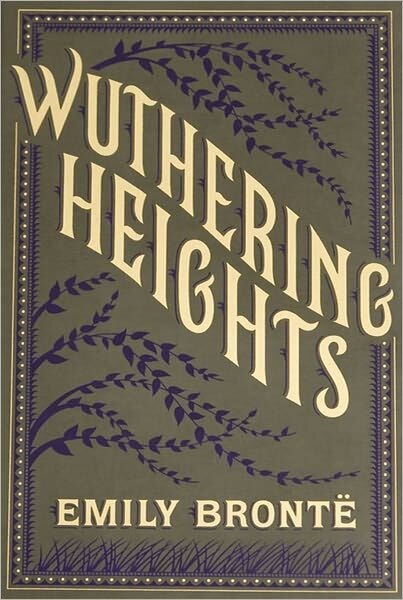Review: Wuthering Heights by Emily Brontë
Wuthering Heights by Emily Brontë is a book that had been on my radar for quite some time before I happened to notice a copy nestled amongst other classic titles in a basket selling books at discount prices in one of my favorite bookstores. Well, by “quite some time,” I mean, a few months...maybe a year. I have always been passionate about reading and writing, but I’ll be the first to admit that I was pretty clueless about classic British literature until I went back to school at the ripe age of 26. I grew up in the United States and the closest I ever got to studying literature was my high school English classes. And, we tended to focus on American writers.
When I decided to pursue my Master’s degree in English literature in Paris (yes, it’s ironic, I know!), the texts we studied were decidedly British, not American. To be honest I welcomed the change and the opportunity to discover titles that I had either never heard of or had just heard of in passing.
My eyes were soon opened to the wonderful world that the Brontë sisters created for themselves and their readers. If you’re unfamiliar with this literary family, it consists of three very famous sisters named Charlotte, Emily, and Jane. They also had a brother named Patrick, and there were two other sisters who tragically died before the age of 13. In truth, all of the Brontë children died at fairly young ages, mostly due to diseases like tuberculosis, limited access to medical care, and, let’s face it, life in the 19th century was hard on the body.
Charlotte is perhaps the most famous of the sisters’ thanks to her novel Jane Eyre, but Anne also found success with her novel The Tenant of Wildfell Hall. And then, of course, there was Emily, who I’ll be focusing on here.
Wuthering Heights is Emily’s only novel. She published it under her pen name, Ellis Bell. The novel was published in 1847, a time when female authors were not taken seriously. If Emily wanted anyone to read her book (or publish it), she had to do so under a male name. The style generally impressed critics and yet at the same time, it tended to confuse. The setup of the storyline had never been seen before, and many assumed that it was written by a man due to its uniqueness as well as its “violence and passion.” Clearly, a woman of 19th century England couldn’t write about those types of things! Clearly.
To give you a quick synopsis of the plot of the novel without giving anything away, Wuthering Heights takes place in the moorlands of Yorkshire, England. The book takes place over several generations and is centered around a family and their employees who live in a farmhouse called Wuthering Heights. It is a story of revenge and of love and is told mostly from the viewpoint of the housekeeper.
Victorian England didn’t want to read about the realities of what could happen in the moors. Wuthering Heights features stark moments of cruelty and sexual passion. It also puts into question the strict Victorian moral values and ideals of the time as well as puts into question women’s traditional role in society in the 19th century.
Most if not all of the female characters in the novel are strong and resilient women, especially in the face of the toxic and brutal male characters. In my opinion, these cruel male characters represent the patriarchal British society that Brontë lived in as a whole. Her female characters stood up against the patriarchy in ways that perhaps Brontë wasn’t capable of doing herself. Although, the act of writing and working to get her work published was Brontë’s own form of rebellion against the patriarchy, no matter how small and insignificant it may seem to our modern minds.
In many ways, the fact that Brontë chose to write about issues such as gender roles is a feminist act in and of itself, especially considering the time period in which she wrote the novel. And, in many more ways, she helped to pave the way for future female writers to broach the subject as well. It’s heartbreaking that she died at the young age of 30, just one year after her first and only novel was published. Who knows the feminist masterpieces that lay waiting in her brilliant mind.
In an effort to support Bookshop.org, this post contains affiliate links. We may receive a commission for purchases made through these links. Thank you for the support!

